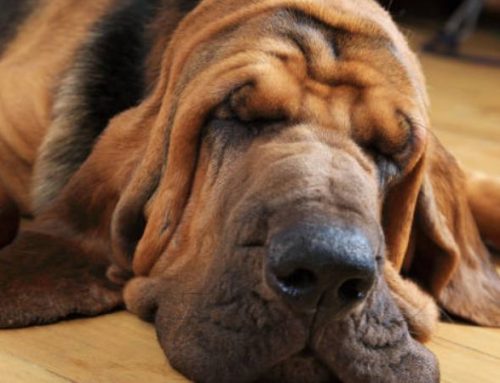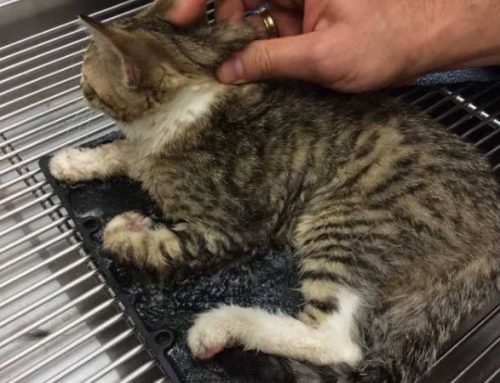Neutering is an important procedure for your cat’s health and well-being, but it often raises one common question: “How long will my cat stay at the vet after surgery?” In most cases, cats are admitted in the morning and can return home the same day. Understanding what to expect before, during, and after the operation can help ensure a smooth and comfortable recovery for your feline friend.
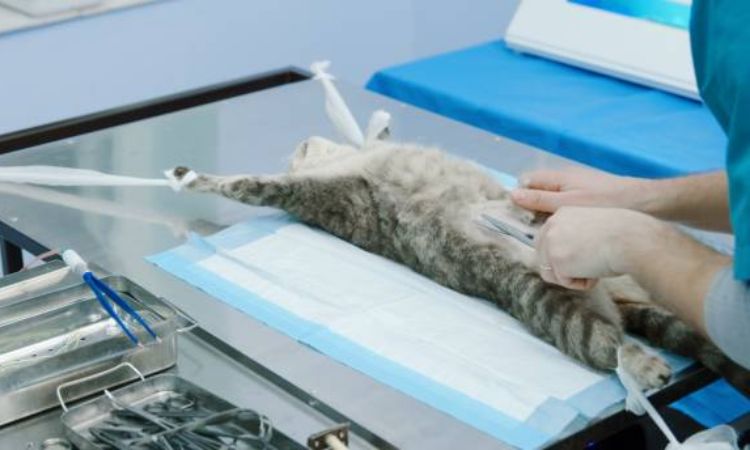
Typical Duration of Vet Stay After Neutering
Neutering is generally a short, routine procedure, and most cats are able to go home on the same day. After the surgery, your cat will be monitored by veterinary staff until they fully wake from anaesthesia, are alert, and show stable vital signs such as normal breathing and temperature.
In some situations, a veterinarian may recommend an overnight stay. This is more common for:
- Kittens or very young cats, whose small size may make anaesthesia slightly riskier.
- Senior cats or pets with pre-existing health conditions, such as heart, kidney, or liver issues.
- Cats who had any complications during surgery or require closer post-operative monitoring.
Typically, neutering is considered an outpatient procedure, meaning the majority of the recovery process happens at home. Most cats are active, eating, and behaving normally within a day or two after surgery, though it’s important to follow any aftercare instructions provided by your vet to ensure a smooth recovery.
Factors Influencing Vet Stay Duration
The length of time a cat remains at the veterinary clinic after neutering can vary depending on several factors:
Type of Neutering Procedure
- Male cats (castration): Usually a straightforward and quick procedure, often taking 5–10 minutes, with most cats ready to go home the same day.
- Female cats (spaying): A more invasive abdominal surgery, typically lasting 20–30 minutes, which may require longer monitoring, especially if the cat is very young, elderly, or has a complicated anatomy.
Health and Age of the Cat
- Young, healthy kittens often recover quickly from anesthesia and can usually be discharged the same day.
- Senior cats or those with pre-existing medical conditions may need extra observation to ensure they recover safely from anesthesia and surgery.
Response to Anesthesia and Surgery Recovery
- Cats that wake quickly and exhibit stable vital signs, normal breathing, and alertness can often go home the same day.
- Cats that are slow to recover, unusually drowsy, or show signs of discomfort may require an overnight stay for monitoring.
Presence of Complications
- Any unexpected bleeding, infection risk, or surgical complications can extend the stay.
- Cats with post-operative issues such as vomiting, excessive swelling, or abnormal vital signs may need additional care before discharge.
In general, neutering is designed as an outpatient procedure, but these factors can influence whether a cat goes home the same day or stays under veterinary supervision for a longer period.
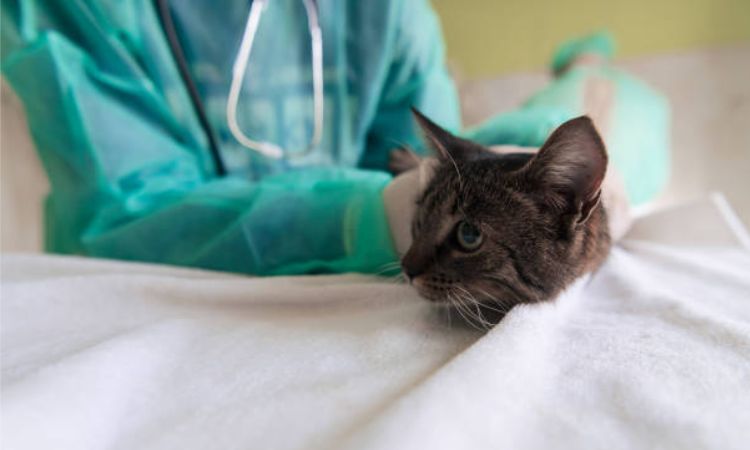
What Happens Immediately After Neutering at the Vet
Once the neutering procedure is complete, your cat will enter the initial recovery phase, which is closely monitored by the veterinary team.
- Recovery from anesthesia: Your cat will gradually wake from the effects of anesthesia, usually within a few hours. During this time, the vet and nurses carefully observe their breathing, heart rate, and overall alertness to ensure a smooth recovery.
- Pain management and monitoring: Pain relief is provided through injections or medications, and the staff continuously checks for any signs of discomfort or adverse reactions. This helps keep your cat comfortable and reduces stress.
- Assessing normal bodily functions: The veterinary team will monitor your cat’s ability to urinate and defecate, ensuring that normal bodily functions are restored after surgery.
- Incision site check: The surgical site is inspected for any bleeding, swelling, or signs of infection. Ensuring that the incision is clean and secure is crucial before your cat is allowed to go home.
Most cats are ready to leave the clinic either the same day or after a short overnight stay, depending on their recovery progress and any individual needs.
Post-Vet Stay Recovery at Home
After your cat returns home from the vet following neutering, proper care and monitoring are essential for a smooth recovery.
- Recommended rest period: Cats should have a calm and quiet environment for about 5 to 7 days after surgery. This allows their body to heal without unnecessary strain.
- Activity restrictions: Avoid letting your cat run, jump, or engage in rough play during this period. Excessive activity can put stress on the surgical site and slow down healing.
- Monitoring for complications: Keep a close eye on your cat for any unusual signs, such as vomiting, extreme lethargy, bleeding from the incision, or refusal to eat. Contact your vet immediately if any of these symptoms occur.
To prevent your cat from licking or chewing at the incision, your vet may recommend an E-collar or protective collar. This helps reduce the risk of infection and ensures the wound heals properly.
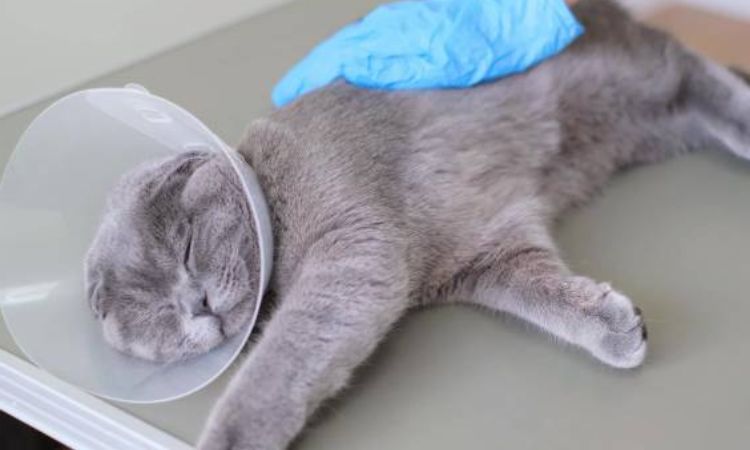
When to Contact the Vet After Neutering
While most cats recover smoothly after neutering, it’s important to monitor their health closely in the days following the procedure. Contact your veterinarian promptly if you notice any of the following issues:
1. Persistent Symptoms: If your cat continues to show signs of vomiting, loss of appetite, or lethargy beyond 48 hours after surgery, it may indicate a complication that requires veterinary attention.
2. Incision Problems: Check the surgical site daily for any redness, swelling, discharge, or reopening. While minor swelling and redness can be normal during the first 24 hours, anything worsening or continuing beyond this period should be assessed by a vet immediately.
3. Urination or Defecation Issues: Difficulty urinating or defecating can be a serious concern. Contact your vet if your cat has not urinated within 24 hours or has trouble defecating 72 hours post-surgery.
Prompt attention to these warning signs ensures your cat recovers safely and comfortably from neutering. Always follow your veterinarian’s guidance and never administer medications without professional advice.
See more related content:
- How to stop a cat in heat from meowing at night
- Cat in Heat? What to Expect When Your Female Cat is Calling for a Mate
While the stay at the vet for a cat’s neuter surgery is typically brief, usually just for the day, the complete recovery process at home takes longer. Owners should be prepared for a period of rest and careful monitoring to ensure a smooth and full recovery for their feline friend


